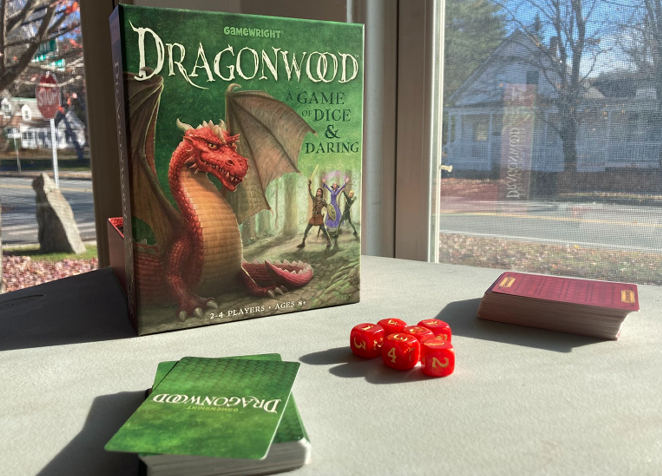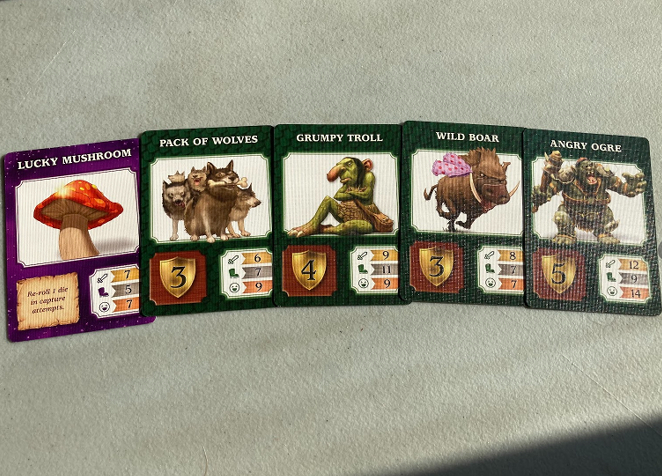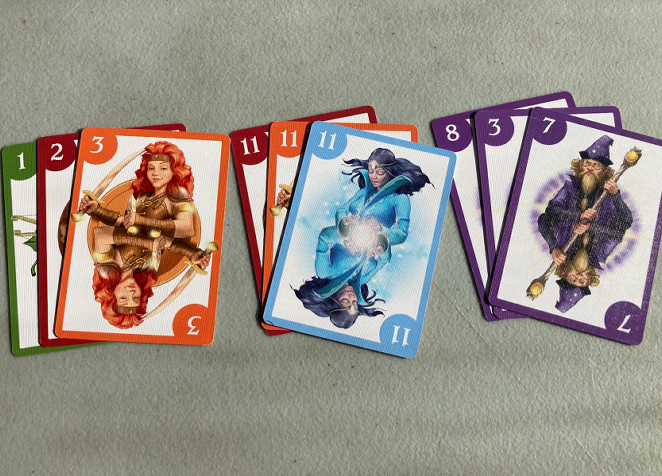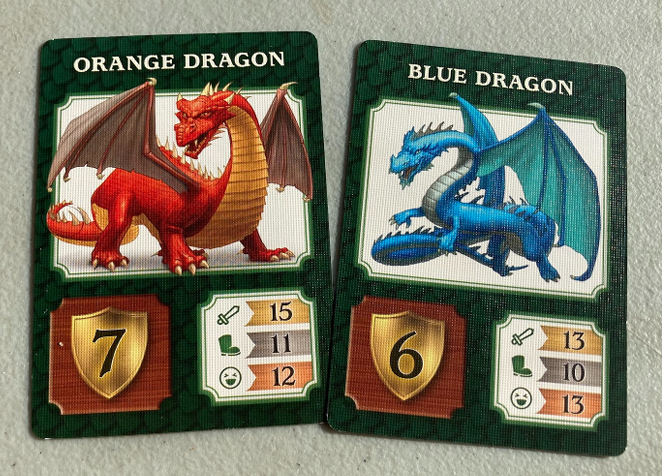I’m supremely “Meh” on Dragonwood. The shrink wrap on my copy of the game had a sticker informing me that it won the Mensa Select award. This award is shared by Dominion and Set. I’m not sure why Dragonwood, of all games, was added to that lofty grouping.

Maybe there’s a high level of strategy present in Dragonwood and I’m not smart enough to understand it. Maybe the people giving out this award only play 5 games a year. If I had to guess, I would guess the second one.
Dragonwood is incredibly simple. On a player’s turn, they either draw a card from a central adventurer deck to their hand, or play adventurer cards from their hand to try to capture monsters or obtain equipment from a central row. The adventurer cards have five colors, and are numbered 1-12, with a set of each.

Capturing a monster requires you to play a set of cards as a strike (a straight: 1,2,3), a stomp (same number: 8,8,8), or a scream (a flush: blue, blue, blue). Then you roll dice equal to the number of cards you played. If the sum of your roll value is higher than or equal to the value of the card you are trying to capture, you take the card. If not, you return your played set of adventure cards to your hand, and then have to discard a card as the cost of failure.

Monsters are worth victory points. Equipment gives bonuses to future roles.
This is pretty much the entire game. It’s also worth noting that game’s six sided dice have faces: 1, 2, 2, 3, 3, 4. The end result is a fairly narrow range of expected outcomes.
The game ends when the adventurer deck has cycled twice, or both of the dragon monsters have been defeated.

Frankly, the end result is rather boring. There are virtually no interesting decisions to be made. Instead, you just do a quick analysis of if the expected outcome is worth the victory points. The equipment is almost all beneficial stat sticks, or one time buffs.
The nicest thing I can say about Dragonwood is that if I was trying to teach someone that board games aren’t difficult to learn, Dragonwood would be a great example an easy-to-learn game. Not “easy to learn, hard to master.” Not particularly fun. But a simple enough game to learn to play from the rulebook.
I believe this is called damning with faint praise, but it’s all the praise I can muster for Dragonwood.
